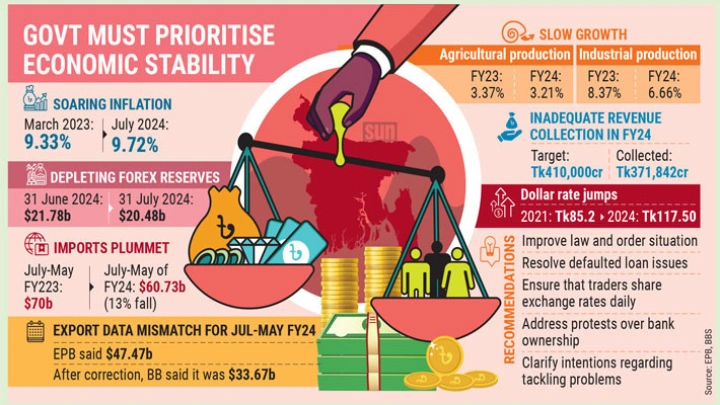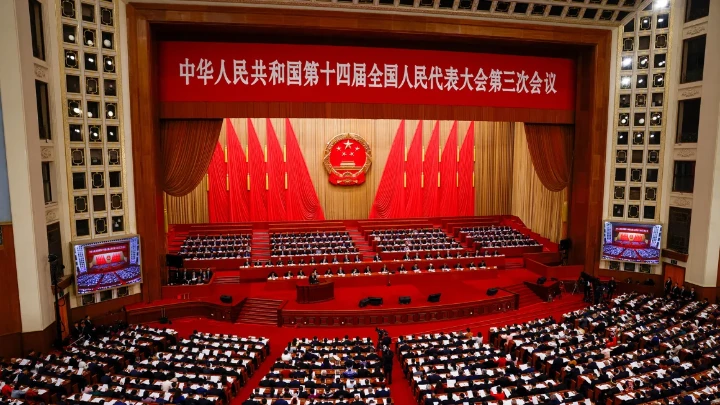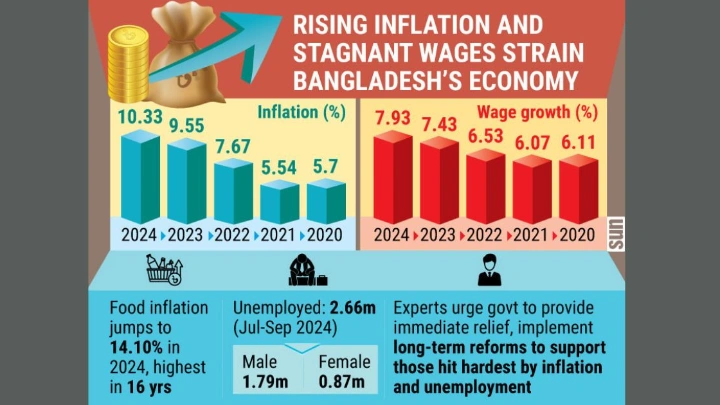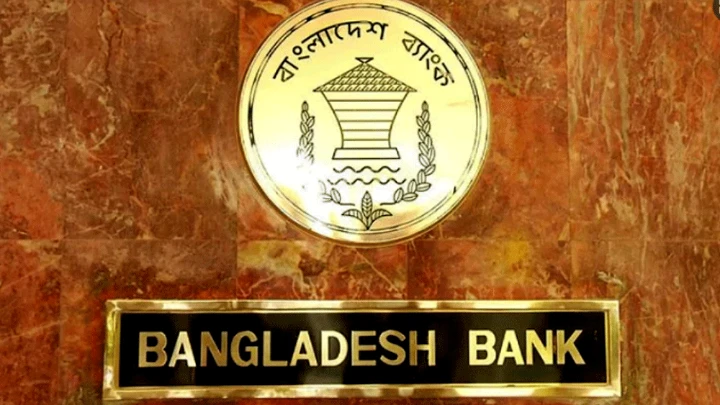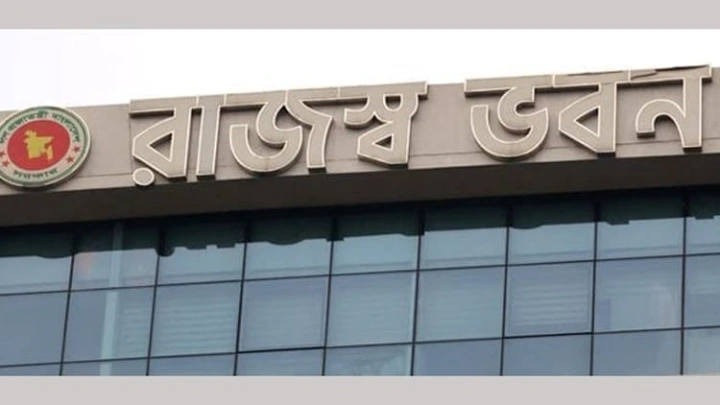Economic reforms, stability major challenges for interim govt
DailySun || Shining BD
An interim government has taken charge at a time when the country’s economy is beset by enormous crises – including soaring inflation, depleting forex reserves, decreasing exports and slowed growth, inadequate revenue collection, dollar crisis, and stagnant private investment – which intensified over the last few years.
Besides, the entire country is stunned by murder, destruction, anarchy, theft and robbery as many police stations were left vacant.
Experts said the newly appointed advisers must immediately focus on ensuring public safety, restoring the economy, and introducing reforms in the political and electoral systems.
Dr Zahid Hussain, former lead economist at the World Bank’s Dhaka Office, told the Daily Sun, “High inflation, dollar crisis and the financial sector’s vulnerability are the main economic challenges of the government. As the students' movement for quota reform dealt a heavy blow to the already ailing economy, the interim government should work diligently in these sectors.
“Besides, the interim government must now focus on macroeconomic stability. To achieve this, it needs to curb inflation, overcome the foreign currency crisis, and relieve the distress in the financial sector.”
Then again, to relieve the distress in the financial sector, the interim government must control the issue of defaulted loans. Otherwise, the liquidity crisis will never end. To stablise the money exchange market promptly, the government should ensure that all forex traders share their exchange rates daily.
Ahsan H Mansur, executive director of Policy Research Institute of Bangladesh, said, “First and foremost, the law and order situation must be improved. Otherwise, any measures taken regarding the economy will be ineffective.
“Additionally, the unrest that has arisen in recent days, including protests and movements over bank ownership and control, must be addressed urgently. Measures must be taken to prevent anyone from withdrawing money from the banks at this moment.”
“As the interim government has taken charge, now economists would be able to provide opinions if the government specifies its plans. It needs to clarify how it intends to tackle inflation, whether it will form a commission or taskforce to address problems in the banking sector, or if it will delegate these tasks to the Bangladesh Bank,” he added.
Biggest challenges: Inflation, slow growth, insufficient revenue
People faced the double whammy of runaway inflation and skyrocketing prices of essential commodities for more than a year, which made life utterly miserable for the low and middle class people.
According to the Bangladesh Bureau of Statistics (BBS), inflation has been running high for more than one and a half years, forcing people to spend more than their income. The overall inflation rate was 9.33% in March 2023, which is still over 9%. At the end of June this year, the overall inflation stood at 9.72% while food inflation was 10.42%.
The country’s GDP witnessed a lower growth in FY24, compared to the target set for that fiscal year. According to the BBS, the production growth in the agriculture sector in FY23 was 3.37%, which dropped to 3.21% in FY24. The industrial sector’s production growth dropped to 6.66% in FY24 from 8.37% in FY23.
According to the National Board of Revenue, their tax collection fell around Tk38,000 crore short of the government’s revised goal of raising Tk410,000 crore in FY24. The revenue administration collected Tk371,842 crore in that fiscal.
Dollar market unstable, reserves under pressure
The dollar price in the country was Tk85.2 in 2021, which has jumped to Tk117.50 in the banks and Tk114-125 in the kerb market over the last couple of years.
The Bangladesh Bank has taken multifaceted initiatives to resolve the crisis in the dollar market, but apparently those were not very effective. To restore stability in the foreign exchange market, the dollar rate was increased by Tk7 in one jump. On 8 May, a “crawling peg” was introduced, setting the intermediate rate of the dollar at Tk117, which was previously Tk110.
On the other hand, foreign currency reserves declined by $1.3 billion in the month of July and stood at $20.48 billion on 31 July as per the calculation of the IMF method, down from $21.78 billion a month ago. At the same time gross reserves (which include Export Development Fund and loans from reserves) stood at $25.92 billion. The country's foreign exchange reserves have been falling for more than a year due to higher import payments and lower than expected export earnings and remittance inflows.
Remittance inflow in the country has witnessed a decrease in July this year after a surge in the previous nine months. According to Bangladesh Bank data remittances dropped to $1.90billion in July compared with that of $1.33 billion in September 2023.
Import plummets, export data mismatch
The country’s entrepreneurs imported various goods worth $60.73 billion in the 11 months (July 23-May 24) of FY24. It was around $70 billion, or 13% higher, during the same period of the previous fiscal
As per the Export Promotion Bureau (EPB) data, exports stood at $47.47 billion in the first ten months of fiscal 2023-24. However, after the correction by the central bank, the export volume stood at $33.67 billion – $13.8 billion less than the EPB estimation.
Due to this significant shortfall, various economic indicators in the country have been adversely affected, the Bangladesh Bank said. The current account has gone from surplus to deficit due to decline in exports. Besides, as the target of repatriated money against exports fell, the fiscal account turned from deficit to surplus.
Shining BD

